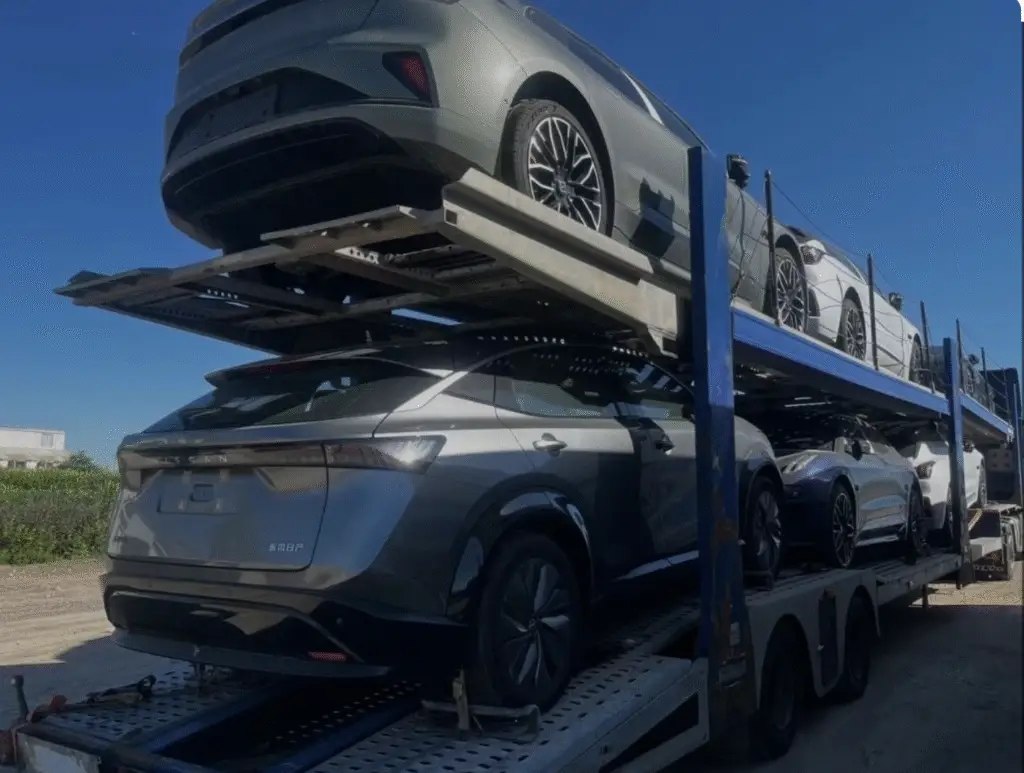Exporting vehicles from China has become increasingly popular in recent years, thanks to the rapid development of Chinese automobile manufacturing and the rise of electric vehicles (EVs). However, one common concern among international buyers is the legal and logistical challenge of completing the export process — especially if they or their supplier lack the necessary export license.
This article aims to provide a clear, objective explanation of how the export process works, what roles the export license plays, and how international buyers can still complete exports without holding this license themselves. It is designed for individual buyers, car dealers, logistics planners, and anyone considering purchasing and transporting vehicles out of China.
📌 What Is a Chinese Export License?
A Chinese export license is a legal document issued by authorities in China (usually the Ministry of Commerce or local Customs offices), allowing an entity to export specific types of goods out of the country. In the case of automobiles, the process is often more involved than for general goods because of the regulatory concerns around vehicle emissions, safety, and ownership transfer.
Only companies registered with proper export qualifications (进出口经营权) are permitted to submit customs declarations, handle vehicle inspections, and complete official exports. These licenses are typically held by:
- Vehicle manufacturers
- Authorized export trading companies
- Specialized freight forwarders or logistics firms
If you are a foreign buyer or your seller is a local dealership without export permissions, you will not be able to complete the process legally on your own.
🛑 Why Export Licenses Are a Barrier for Foreign Buyers
Many foreign customers source vehicles in China through online platforms, local agents, or small-scale dealerships. These sellers may offer competitive prices and quick access to popular models — especially EVs or second-hand vehicles. But they often lack formal export rights.
This creates a logistical gap:
- The seller cannot complete the customs paperwork
- The buyer does not have legal standing in China
- The vehicle may be purchased, but stuck inside the country
This situation is more common than most realize, and it has led to delayed shipments, compliance issues, or even abandoned vehicles at ports.
✅ So, What’s the Solution?
Fortunately, there is a legal and standard workaround: working with an authorized export agent or logistics company in China that holds the required license.
These licensed third-party companies act as intermediaries. They receive the vehicle, handle export procedures, and manage transportation on behalf of the foreign buyer. In legal and customs terms, they temporarily take responsibility for the goods during the export process — even though ownership belongs to the foreign buyer.
This practice is widely used across the industry and is compliant with Chinese export law.
🧭 What Does the Export Process Look Like (Without an Export License)?
Let’s walk through a simplified export workflow for a buyer who does not hold a license:
- Vehicle Purchase
The buyer sources a car (or multiple units) from a local Chinese supplier or online platform. - Logistics Company Involvement
A licensed export logistics company is appointed to coordinate the shipment. They may arrange pickup of the vehicle from the seller’s location. - Document Preparation
The logistics provider prepares the packing list, sales contract, proof of payment, vehicle ownership documents, and any required permits (like CCC certification for EVs or second-hand vehicle inspection reports). - Customs Declaration
Using their export license, the logistics firm submits all documentation to Chinese Customs and handles any inspections. - Shipping Coordination
Once cleared, the vehicle is loaded into a container, onto a Ro-Ro vessel, or other transport method (rail, truck, or air freight, depending on destination and budget). - Final Delivery
The vehicle arrives at the overseas port, where the buyer completes local customs clearance and receives delivery.
Throughout this process, the buyer remains the final recipient and owner of the vehicle — but the export is legally and logistically handled by the third-party provider.
🌍 Common Destinations for Vehicle Export from China
- Russia, Belarus, and Central Asia: Often via rail or truck. These inland destinations benefit from China’s mature rail infrastructure and low transit costs.
- Europe: Containerized rail shipping to Germany, Hungary, Poland and more.
- Middle East, North America, South America: Via ocean freight — both container and Ro-Ro services depending on the port.
- Southeast Asia: Often through rail and short-haul sea freight.
📎 Final Thoughts
If you’re considering exporting vehicles from China — whether you are an individual buyer, a fleet importer, or a reseller — lacking an export license should not be a dealbreaker.
However, it’s important to understand that the process requires:
- Accurate documentation
- A trusted licensed logistics partner
- Knowledge of destination country import requirements
Always verify that the company assisting you with export holds a valid export license, has experience with vehicle logistics, and can communicate clearly about the responsibilities on both sides.
With these precautions in place, exporting a car from China — even without your own export license — is entirely feasible and increasingly common in today’s globalized vehicle trade.
